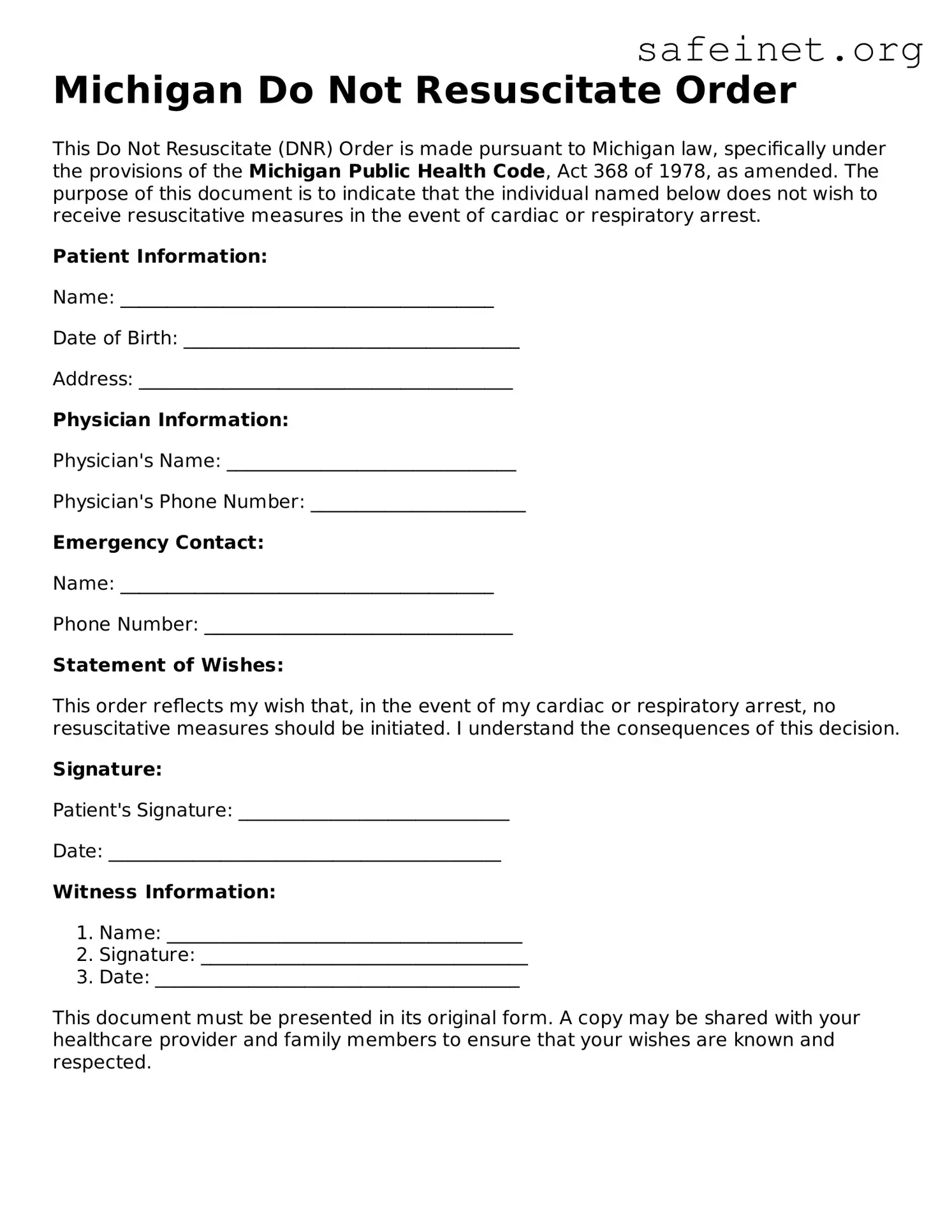Michigan Do Not Resuscitate Order
This Do Not Resuscitate (DNR) Order is made pursuant to Michigan law, specifically under the provisions of the Michigan Public Health Code, Act 368 of 1978, as amended. The purpose of this document is to indicate that the individual named below does not wish to receive resuscitative measures in the event of cardiac or respiratory arrest.
Patient Information:
Name: ________________________________________
Date of Birth: ____________________________________
Address: ________________________________________
Physician Information:
Physician's Name: _______________________________
Physician's Phone Number: _______________________
Emergency Contact:
Name: ________________________________________
Phone Number: _________________________________
Statement of Wishes:
This order reflects my wish that, in the event of my cardiac or respiratory arrest, no resuscitative measures should be initiated. I understand the consequences of this decision.
Signature:
Patient's Signature: _____________________________
Date: __________________________________________
Witness Information:
- Name: ______________________________________
- Signature: ___________________________________
- Date: _______________________________________
This document must be presented in its original form. A copy may be shared with your healthcare provider and family members to ensure that your wishes are known and respected.
